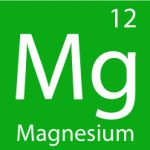Now that you know just what is magnesium deficiency, you need to know how to recognise it in yourself or your loved ones.
Here are some of the classic magnesium deficiency symptoms that you may notice:
-
Anorexia or loss of appetite

-
Weakness and fatigue
-
Heart palpitations and/or abnormal rhythm
-
Muscle cramps and spasms
-
Anxiety
-
Trouble getting to sleep or staying asleep

-
Nausea and vomiting
-
Seizures
-
Calcium or potassium deficiency
-
Tics
-
 Periods of hyperactivity
Periods of hyperactivity -
Difficulty swallowing
-
Tremors
-
Involuntary eye movements
-
Vertigo
-
Failure to thrive among children
Learn more about the relationship between magnesium and energy here.
If you are suffering from any of the above, please examine your lifestyle for any of the following risk factors, the presence of which will increase your probability of being magnesium deficient.
Risk Factors for Magnesium Deficiency
-
 Use of medications such as diuretics, ACE inhibitors, anti-hypertensives, hormone therapy,
Use of medications such as diuretics, ACE inhibitors, anti-hypertensives, hormone therapy, -
Stress – physical or mental
-
High sugar diet
-
High caffeine intake
-
Regular consumption of carbonated drinks
-
Calcium supplement use
-
Alcohol intake
-
High blood pressure
-
Exercise
These recommendations echo the general sentiment that magnesium supplementation is safe and recommended, especially for the estimated 75% of the population with below the recommended daily magnesium intake. (NIH)
The hope is that through measures to prevent magnesium deficiency, risk factors created by long-standing chronic low magnesium could be addressed in more people before severe symptoms and chronic disease develop.
 What if you have both symptoms and risk factors present?
What if you have both symptoms and risk factors present?
It is very hard to get enough daily magnesium in your diet, even if you able to reduce your sugar, caffeine and alcohol intake and increase the types of foods that are rich in magnesium.
So the answer is magnesium therapy and supplements.
Getting a blood test with your doctor to confirm that your magnesium deficiency symptoms are just that is recommended. However this would be more in order to rule out any other cause rather than confirming the magnesium deficiency as it is notoriously hard to diagnose.
This is due to the fact that only 1% of your body’s magnesium is actually stored in the blood and it uses a feedback mechanism to maintain these serum levels at the cost of your stored magnesium.
This is where magnesium deficiency becomes such a big snowballing deal.
Your body detects low serum magnesium levels, and so draws on the stored magnesium in your heart, skeleton and other cells to maintain the optimum level in your blood.
This of course will have a detrimental effect on the way your heart beats, or the formation of new osteoclasts and osteoblasts in your bones among thousands of other functions. And in turn makes the deficiency so difficult to diagnose.
 Undiagnosed and untreated, magnesium deficiency symptoms may have some serious long-term implications for your health.
Undiagnosed and untreated, magnesium deficiency symptoms may have some serious long-term implications for your health.
Magnesium deficiency has been implicated in the following conditions:
-
Alzheimer’s disease
-
Cardiovascular disease
-
Anorexia
-
Hypertension
-
Stroke
-
Osteoporosis
-
Kidney failure
-
Liver disease
-
Diabetes
-
Infertility
-
Pre-eclampsia
-
Migraine
-
Fybromyalgia
-
Depression and anxiety
-
Tooth decay
Find out more about the different types of magnesium supplements and discover the right one for you.


Permalink //
Hey there!
Dr. Carlolyn Dean when manifested in your valuable article “Magnesium Deficiency Symptoms” that magnesium alone has no side effects, but my question is whether the already processed products could cause some negative symptom?
I will take anyway the Mega-mag because looks secure for my health.
thank you for share that information.
renan
Permalink //
This is very true Renan.
For no side effects you need to take the most ultra pure magnesium chloride which is all natural and no additives.
For further information on side effects please have a look here – Side effects of Magnesium
Thanks for your comments, Kristine G
Permalink //
Very interesting article about magnesium deficiency. Thanks! I understand from your article that mild magnesium deficiency can be cured with magnesium supplements, right? Is there another way before taking the supplements, like eating magnesium rich foods? If yes, what foods? Also is there a danger of getting too much magnesium while taking the magnesium supplements?
Permalink //
Hi Kristof, thanks for your comment.
In generally healthy people, excess magnesium is able to be filtered off and excreted by the kidneys so the body only gets what it needs. In supplement use it is recommended that you do not exceed the recommended dosage on the packet and consult your doctor before use if you have any disease, are taking medications are pregnant, breastfeeding or under 18 years old.
Prior to taking magnesium supplements, it is advisable to start by looking closely at your diet.
Here is a link to an article on some of the best foods to add to your diet to enrich it with magnesium.
I have also included on the list the amount of magnesium contained within a single serve so you are able to tally up how much you may already be getting in a day.
Whole grains, green leafy vegetables and nuts are among the highest magnesium content of food.
Best of health, Kristine G
Permalink //
Wow, I have definitely been experiencing most of these symptoms.
I just commented on another post, the one on magnesiuml oil, and I’ve definitely ruled out that I have a magnesium deficiency since visiting your site.
It’s such an informative site and I’m glad I came across it today. It’s crazy how they lack of something our bodies don’t produce can cause suck drastic symptoms when we are lacking it from our diet/routine.
Bookmarking this site for later!
-Heather M.
Permalink //
I’m guessing you have to go and get blood work done to check your magnesium levels? I’m 44 years old now I wonder if its a good idea to start taking a magnesium supplement. Does your magnesium drop as you get older or is it any age you can have a deficiency?
Permalink //
Hi there,
Actually, blood work isn’t entirely accurate in testing your magnesium levels as there is a biofeedback mechanism in your blood that maintains serum magnesium by depleting the skeletal cells instead. It’s more an assessment of your risk and lifestyle factors, and symptoms combined with the blood test which gives an answer. As you age, your need for magnesium does increase so deficiency is easier to come by.
Thanks
Permalink //
Magnesium is such an essential mineral but I had no idea a deficiency could cause all those conditions you listed. My grandfather had Alzheimer’s so I’m doing everything I can to make sure I don’t follow that path. I prefer to get the nutrients I need from food rather than supplements. Do you know which foods are the richest in magnesium?
Permalink //
Hi Katie,
Check out the post on magnesium rich foods here: Magnesium rich food chart